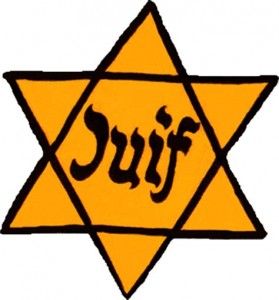
As one who went through the nightmare, Tziporah Abramowitz (77) is more capable than anyone else to connect to the depths of the souls of the holocaust survivors in order to help them with the emotional challenge of coping daily with the horrible memories, which do not leave them alone for a moment. She has become a beloved volunteer at Ezer Mizion’s social club for holocaust survivors. Her encouragement, her compliments, her ability to engage the members and her weekly presentation on the Parsha (Torah portion of the week) all serve to bring that elusive smile to the faces of these elderly victims of a horror that defies description.

Tziporah was one of those saved by Raoel Wallenburg. She was hidden, together with hundreds of children, in the cellar of one of the many buildings rented by Mr. Wallenburg. In the 17th century there had been a terrible fire in London that killed many. When the “Pest’ section of Budapest was built, it was required that from every building, there would be a way to escape to another building. This area was thus blessed with a network of secret underground escape routes of which the Germans were not aware. When the Gestapo would come to one building, the children were quickly smuggled to another. The escape routes also proved invaluable at the end of the war. The Russians has surrounded Budapest for two months but were afraid to enter the city due to street fighting that would end in death as they were threatened by Hitler. When they were informed of the escape network, the problem was solved. They surprised the Germans and took over Budapest.
“We were so weak. I couldn’t walk. My older brother asked a Russian soldier for food and he kindly gave us a loaf of bread even though the soldiers didn’t have much themselves. We lived on that bread for a week. I was so sick with ringworm. The skin all over my body was eroded. The doctor said I needed penicillin to live but there was none. Only in the black market. My father had escaped from the camp and joined the partisans. He was caught and was beaten till his teeth were knocked out. Now that the war was over, he laboriously made his way back to our little village. With him, he brought two things: meat and a gun. With those, we could obtain all our needs. Now my father went to the druggist and told him that he must obtain penicillin for me. If he would, he would receive lard from the meat. If he wouldn’t, he’d receive a bullet. The threat frightened the druggist. When my father returned that night, the druggist had obtained a generous supply of penicillin which saved my life.
“Even though we could have gone to America, my father did not want to live in what he called a foreign land,” continues Tziporah. “It took a long time to reach Eretz Yisroel but Eretz Yisroel was home. Right after the war, people had come to my village and were fed by my mother who, by then, was able to obtain food and prepared huge pots for all the starving Jews. This is how I was brought up. My home was always a place of chessed. Now it is my turn to give. I am gratified to be a part of Ezer Mizion, an organization that accomplishes so much.”

